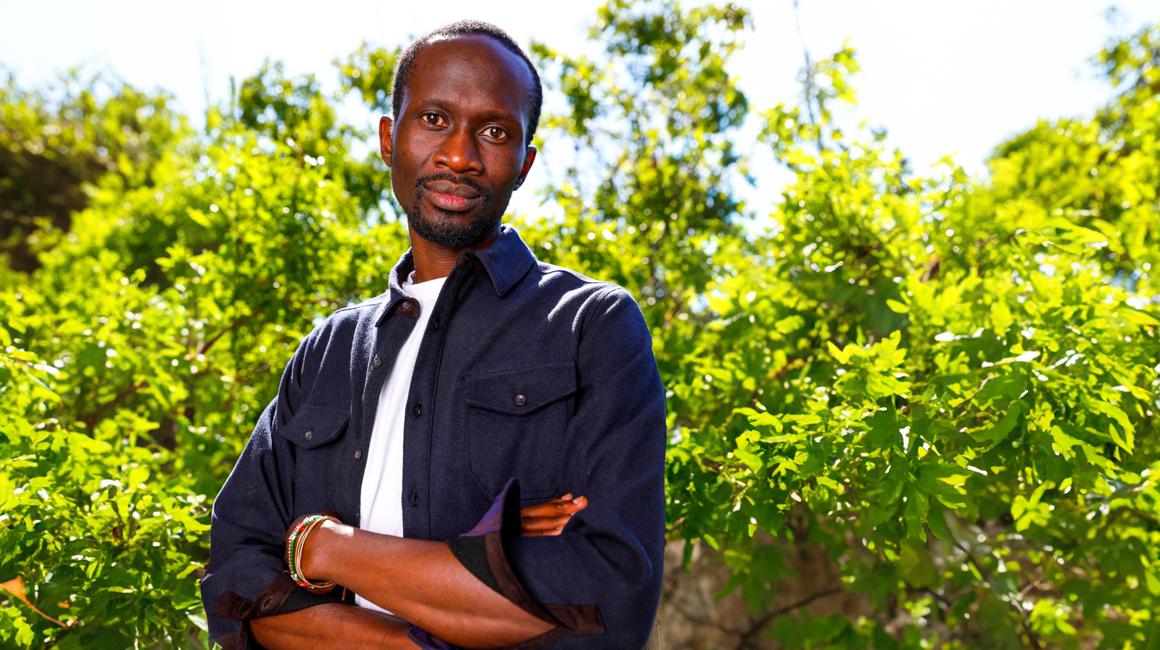Get to Know Your Professor: Dr. Cliff Oliech
The vibrant sense of community and belonging throughout the School of Education classrooms and across campus is what Special Education Professor Dr. Cliff Oliech loves most about Duquesne. Dr. Oliech was greeted by this community when he first came to Duquesne from his home in Kisumu, Kenya to study Special Education in our School of Education (M.S.Ed. Special Education, CBP/HD '20 | Ph.D. Special Education '23). He embraces meaningful connections and encourages his students to build them.
Dr. Oliech emphasizes that teachers are responsible for giving students opportunities to grow, and diverse, equitable learning opportunities are essential. His research aims to improve educational and employment opportunities and outcomes for individuals with disabilities, supporting the notion that everyone, with or without a disability, has a goal of employment, education and independent living.
Get to know Dr. Oliech as he shares what he loves about Duquesne and Pittsburgh and offers insight as he works to make a difference in the lives of learners through his teaching and research.
Q&A with Dr. Oliech
- Ph.D., Special Education, 2023
- M.S.Ed., Special Education - Cognitive, Behavior, Physical/Health Disabilities, 2020
I love the opportunities the School of Education has provided to shape who I am, my values, my knowledge and my connections. Furthermore, scholarship opportunities allow students to pursue their academic aspirations with financial support.
I love our students. They seem happy to be part of our campus community. Students enthusiastically join clubs and organizations. Furthermore, they are excited about volunteering, including during summer break to prepare for welcoming incoming freshmen and transfer students before classes begin every fall. There is a sense of belonging here.
The individuals who work here are kind and respectful. And everyone enjoys developing valuable relationships that usually continue after graduation.
When you arrive at Duquesne work to build strong relationships and network continuously. Establishing meaningful connections can positively impact lives and professions. Finally, don’t feel the pressure to conquer the world. Do your best and refrain from comparing yourself to others. If it is your best nothing else should matter.
When I teach, space is created for all students. Individuals who are on the margins belong in the center. My input empowers all students.
- Luo: Western Nilotic language family spoken in East Africa
- Kiswahili: Kiswahili, also known as Swahili, is a Bantu language widely spoken in East Africa. It is Kenya's national and official language.
- English: English is the language taught in educational institutions in Kenya.
What is your favorite thing to do in the city?
I enjoy the view of the city from Mt. Washington. I also appreciate the options for sporting events in Pittsburgh: football, baseball, soccer and hockey.
Where is your favorite place to eat in the city?
Two places came to mind quickly. Salem’s Market and Grill, (Mediterranean cuisine) in the Strip District is my favorite because it reminds me of home (Kenya, East Africa). My other favorite place to eat is Monterey Bay Fish Grotto in Mt. Washington.
Some of my previous work involves applying UDL in college STEM programs to enhance scientific skills and teaching soft skills for employment using video modelling (VM) to students with Autism Spectrum Disorders (ASD) and Intellectual and Development Disabilities (IDD).
Reimagining quality of life outcomes for Persons with Disabilities (PWDs) is the work I am currently focusing on. This work is based on the awareness that we tend to think everyone with a disability has a goal of employment, education and independent living.


